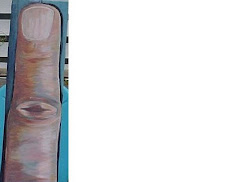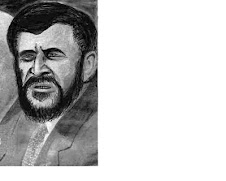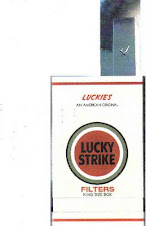 |
| The Revolution Cafe |
Unable to restrain myself, I have sat down to record this history of my final steps on life's careen, though I could as well have done without it. You have to be all too ballsy to write about yourself without shame. My only excuse is that I'm not writing about myself, nor for the sake of the readers' praises but for the sake of the readers' exposure to one of the greatest writers in 19'th century literature with whom only the literati are familiar. I have suddenly decided to record this moment so struck was I by the beauty not only of the language but of the scene that Turgenev used to illustrate a raw youth's power to transcend his sordid surroundings and create the sublime while in an environment admittedly subprime.
The small city of San Francisco has a large fraternity of music lovers, many of whom are shut out, by virtue of its stratospheric costs, from the commercial music scene. But in the Mission neighborhood, now being inexorably nibbled away in a slow-death version of how the South of Market music scene was snuffed out like a sputtering candle by the Dot-com boom a generation earlier, entirely extinguishing it so that there's not a remnant left; there are still in the Mission a couple of places that are bravely holding on and offering a few locales to eat, drink, and be made merry with melodies and airs from different eras. One of these, (locales, not tunes), is The Revolution Cafe, a nook of a place located diagonally across the street from a City College neighborhood extension, and an easy lope from the Library's Mission branch . Boasting a lively crowd that overflows onto the sidewalk, and featuring live jazz on Wednesday nights, Classical music on Sundays, and in the afternoons, opening its piano for the use of students whose teacher sits right next to them sipping her cappuccino, trying not to grimace at the musical murder taking place right in front of her ears while the other patrons go about their sexting and texting, perhaps betimes enjoying a tasty melted brie on dark rye toast.
It
is patronized much more assiduously than the few other establishments
of this kind in the locality, and the reason for this is its almost
non-commercial nature, although, of course, it does have to pay the
rent, but that's a fact not so blatantly impressed upon its clientele as
it would be in any other part of our once-quaint city that's become far
too eager to morph into the Hong Kong of the West, where money reigns
supreme and music and its practitioners, purveyors, and aficionados, are
considered losers.
I
have to admit that The Revolution at no time offers much of a spectacle
to please the eyes, despite the art, all created by locals, festooning
its otherwise drab walls. It's not in the healthiest or wealthiest part
of the City but its sidewalk sports a mini-park, fashioned out of a
trifecta of parking spaces requisitioned for this purpose by the city,
and a friendly atmosphere overflowing onto the adjacent sidewalk, alive
with the chattering of music appreciators hobnobbing and reefering with
the musicians during their breaks.
One
Sunday night, in an attempt to delay arriving at the Bart stop that's
conveniently situated but a couple of blocks away, I meandered over to
the Cafe for no particular reason, I just wanted to pass it and see
what, if anything, was going on, when I heard an anxious voice, touched
with more than a bit of annoyance, urging someone onward, it inspired me
to offer a redo, a reboot, a purloining or maybe just coining of Singers, a short story from Turgenev, from his A Hunter's Sketches, and I thought, well, why not?, so here goes:
'Come
on, come on, now!', he blurted out in a querulous voice, and only then
did I see him materialize in the Cafe's doorway, a tall behemoth of a
bohemian wearing an overcoat that gave him a lumpish appearance, tied
with a blue silken sash, an adornment of pure affectation, as his coat,
despite its apparent vintage, still had its full complement of buttons,
which dangled, conspicuously unused, from their appointed spots. "Come
on, Willie, will you? Pick up the pace a bit, couldn'tya?, they're
waiting on you to be waiting on them, and here you're movin' at a crawl
... Come on!'
'I'm
comin', I'm comin', remonstrated the source of the exasperated
musician's rancor, from directly behind me, who I saw, as I glanced over
my shoulder, to be a smallish man walking with a limp and grimacing
with every step he took, as though to walk was an exercise in
self-torture, but dressed more nattily than his tormentor, and sporting a
ballcap he was wearing backward that, as it contrasted so sharply with
his otherwise tasteful attire, lent his round, bespectacled face a
slightly comic look. 'I'm coming, my man,' he continued, limping in the
direction of the Cafe, 'Why're you rushin' me? What's the big deal?'
'Why'm
I rushing you?", Big Brother, as so I dubbed him, answered, 'All the
bigwigs are waiting for you - Parsons, the pianist; Ulf, our drummer;
Fiona, the Cellist; and Adam and Marc, our dueling vocalists. All good
talent, and they're waitin' on you, and you ask why'm I calling you?
There's a bucket o' tips from the night's performances, and they're
betting it all on who gets the better of whom; who sings the best ...
See?'
'Adam'll be singing?' Willie asked with a more lively interest, 'Really?'
'Yeah,
really,' Big Brother answered, (whose name I'm shortening to BB, not
having heard his real one yet, and in deference to the newly departed
blues singer), and raised his eyebrows theatrically in mock rancor,
"Course he'll be singing, if he's made a bloody bet, you old bumbler.'
"Well
get outta my way then, dimwit,' Willie chortled, and, having reached
the couple of steps in front of the veranda, he pushed BB aside with his
elbow and they both made their way through the door, the opening of
which revealed a crowded dim interior that exhaled a hubbub of voices
intermingled with a din of tuning instruments, clinking glassware, and
an easy-listening jazz radio tune.
All
of which served to arouse my curiosity, as I had never heard of any
singing contest, no matter how impromptu, which this one certainly
sounded like it was, ever having been held there, and it was a pretty
good bet that, if nothing else, I would hear some good music while
enjoying a foamy pint.
Upon
entering I was astonished at how many people were gathered there, as
it's not a terribly large place, and I'd never seen this kind of turnout
before; but then again, I usually went down for the jazz combos on a
weeknight, whereas this was a Sunday event, and it looked like a melding
of the Classical and Jazz audiences into one boisterous, eager crowd,
anxious to hear their favorite genre's singer outdo the star of the
competing, well, to be more accurate we should say, dueling, discipline.
Despite
the sense of its being packed beyond capacity, the air was almost cool,
and my fears that a suffocating and oppressive atmosphere might spoil
the enjoyment of the music dissipated like late-morning fog as I sidled
closer to the bar to get a Black Butte. My arrival seemed to have
momentarily disconcerted the gathering, as though I had crashed a
private party, but when Michael, the pianist, welcomed me with a smile
and a wave, the other patrons went back to their ease and paid me no
more attention. So I got my beer and took out my sketch pad and sat down
(why was there still a seat?) in the corner next to a grey-haired woman
with a sprightly face and nervously anticipatory demeanor. As usual
when you take out a sketch pad, people think you need them to talk to
you to get encouraged to actually draw anything, and she was about to do
exactly that, when BB suddenly roared above the din, having emptied his
glass in a few deliberate gulps, 'Well what's the holdup?', waving his
arms like a berserk conductor, 'What're we waiting for? Let's begin if
we're going to, huh?'
And Adam declared from the front of the room, where he was lolling lazily next to the piano, 'I'm ready.'
'Me too,' added Marc, somewhat less enthusiastically.
'Good, good,' exclaimed Willie, as he reclaimed his post behind the bar. 'Begin.'
But,
despite the consensus that now would be as good a time as any, no one
moved to start the contest, neither the musicians nor the singers, and I
wondered which singer was going to perform what, until Michael, as if
in response to the air of expectancy dominating the room like a cat
slyly eying its prey, sat down at the piano, arranged some music, drew a
deep breath and softly exhaled as if to purge himself of the last
scraps of his just-ended conversation. Adam nodded at him to show he was
ready, and immediately Michael's fingers were summoning from the
upright that looked as though nothing but dissonant shards of sounds
could ever again be coaxed from its dissembled (the front of it had been
removed, revealing all of the padded hammers to the audience's view)
hulk, gently rocking chords that eased all the tense anticipation into a
serene mood of approval and a silence fell abruptly and left him on his
own. His long introduction gave the impression that it was the
invention of the pianist himself who was now unfolding it for the first
time just for us.
The timing of the tenor's entry was perfect.
With
a quiver of his whiskers he took a pace forward, half-closed his eyes
and began to sing in an exceptionally high falsetto, a tenor leger. It
was a pleasant, sweet voice, although a trifle husky; he played with it
expertly, twisting it round and round like a top, ceaselessly running up
and down the scale but always returning to the high notes, which he
successfully endeavored to hold and prolong, dropping into silence and
then suddenly catching up the earlier refrain with a certain carefree,
arrogant audacity. These shifts from one to another were fairly bold,
and sometimes quite amusing and gave the audience quite a bit of
pleasure, so they listened to him with great attention as he and Michael
dissolved into the music with no apparent effort, bearing their
audience downstream on a current of notes, as if discovering for the
first time Berlioz's setting of the "Villanelle," all the sorrow of the
steeply falling "Lament", the title of which elicited the remembrance of
what the music had helped me forget, that something awaited my return,
even though the lovely sounds made it appear far below, a mere speck on
an otherwise unmarred landscape. Perhaps it really wasn't there, perhaps
it had just been my imagination that suggested it were.
But
then the performers emerged as from a dream and stood side by side to
face the audience which emitted a loud and unanimous shout of approval
in one, almost orchestrated, fierce outburst. Ulf threw himself at
Adam's neck and began to hug him to the point of suffocation until a
blush appeared on his face making him look years younger in a flash of
crimson, while BB started shouting from the back like a madman, 'Oh
yeah, Whoo-hoo, Oh Boy!' Even my neighbor, the wizened witch in her
ragged coat, couldn't restrain herself and started banging the table,
demanding, "Huh! Draw that if you can. Bravo!', followed by a raucous
cackling. 'That was a delight,' she then sat back and sighed, as if her
outburst had worn her out, 'That was sheer delight, no denyin it,'
although no one was seeking to anyway. 'He's won,' she suggested
enthusiastically, perking up on remembering the stakes, 'That pot o'
gold's as good as his,' she insisted. 'That poor sucker Marc won't come
near him.'
On
the other side of the room I noticed Willie had reached a swift poke
over the bar into Marc's shoulder who then took a handkerchief from his
pocket and wiped his face while the patron sitting next to him drank
down a glass with greedy swiftness and, after the manner of heavy
drinkers, grunted and assumed a sadly preoccupied look.
Marc
stood up but said nothing, glanced around the room and covered his face
with his hand. We all drank him in with our eyes, none more so than
Adam, on whose face appeared, through his normal self-assured look now
complemented by the triumph of his success, an involuntary faint
uneasiness. He leaned back in his chair, placed both hands under his
thighs, and closed his eyes as though unconcerned with the goings-on
around him. When at last, Marc took his hands from his face, it was pale
as death; his eyes scarcely gleamed through his lowered eyelashes. He
drew in a deep breath and began to sing.
As
Fiona started plucking a few notes from her bass, the first sound his
voice gave was weak and unsure, seeming to emerge not from his chest,
but from somewhere far away, just as if it had flown by accident into
the room. This quivering, ringing sound acted strangely on all of us; we
glanced at each other and I saw BB visibly stiffen. This first note was
followed by another, much firmer and drawn-out, but still clearly
sobbing like a violin string when, after being suddenly plucked by a
strong finger, it wavers in one final, quickly fading tremolo of sound,
after which there followed a thread and, little by little growing in
intensity and volume, the plaintive song poured forth, and each of us
felt a wave of sweetness and shivery anticipation creeping over us. I
had never heard, despite many years of attending concerts that spanned
the gamut from Joan Armatrading to Wagner's Ring, such a voice. Although
slightly broken, with a hint of sickliness to it in the opening notes,
it also revealed unplumbed depths of passion and youthfulness, strength
and sweetness, combined with a kind of attractively uncaring mournful
piteousness. His honest fiery soul resounded and breathed through it and
quite simply seized us by the throat, plucking our heart-strings raw.
The song grew and overflowed, but it was Marc's voice that was obviously
possessed by inspiration; all shyness gone, he was giving himself
completely to this exultation; his voice no longer quivered - it sobbed,
but with that scarcely noticeable, inner tremor of passion which
plunges like an arrow into the soul of the listener, piercing his heart
on the way and eliciting memories long buried, and causing feelings
never expressed to rise closer to the surface, but only vague, flitting
feelings, not given a chance to have their origin discovered before a
change in the tempo and tone of the music takes Marc soaring into vocal
acrobatics as he drags us up to previously unreachable heights along
with him.
As
he sang, his posture seemed familiar, and I remembered driving down the
road in Westford, and as I went by a stretch of lake glistening in a
sunset too early for summer, I glimpsed the first cormorant I'd ever
seen drying its wings, head up, seemingly oblivious to everything around
it except the delicious sensation of the wind caressing the water from
wings held aloft, feathers splayed, which rippled in synchronous harmony
with the gentle waves that lapped the far shore; it stood motionless,
it's glistening breast turned to the violet sky - washed pink at its
extremities by the sinking rays of a prodigal sun. This is what watching
Marc sing brought to mind. He sang, quite oblivious of both us and the
money for which he performed, borne aloft on the sound waves he himself
was generating, while we participated with a silent devotion that
allowed him to remain under the spell of his own instrument, which he
played upon with utterly tranquil resignation until he suddenly finished
on a high, achingly thin note, almost as though his voice had broken.
Not
a soul moved, no one shouted; we just all waited, almost as if we
wanted to make sure he didn't have more, before the spell was broken by
him opening his eyes and gazing at us in surprised silence at our own
stunned stillness. With an inquiring glance around the room, the silence
and visible emotion of his audience told him, right before we suddenly,
spasmodically burst into a calamitous applause, that what he'd hoped it
meant was indeed true, as he recognized that, whereas Adam had taken
the accolades, he had taken the prize.



















































No comments:
Post a Comment